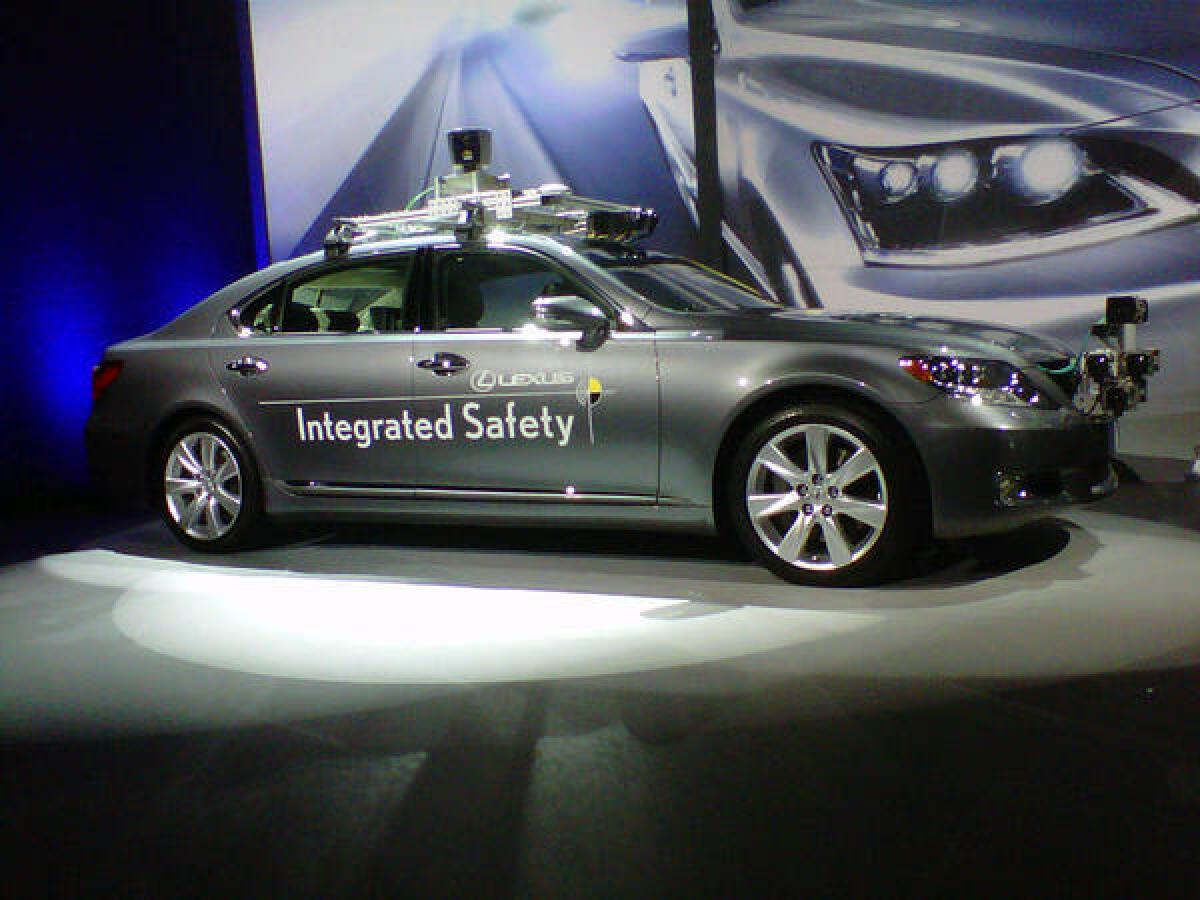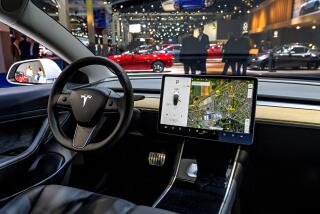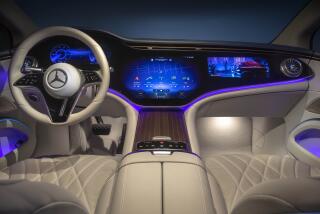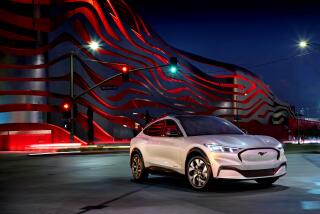CES 2013: Lexus driverless car: ‘Technology alone is not the answer’

Lexus has its own shiny, intelligent vehicle in the growing fleet of self-driving cars being developed by the likes of Google, Audi and others. Just don’t expect it to go on sale any time soon.
The automaker’s Advanced Active Safety Research Vehicle is still a “pure research project” that needs to “build trust with society and governments” before being unleashed on the open roads, said General Manager Mark Templin in a presentation at the Consumer Electronics Show.
“Machines can handle simple tasks,” he said, referencing the millions of dollars the auto industry is pouring into preventative technology that hand over more of the brainpower involved in driving to computers and sensors.
Many vehicles already automatically buffer against human errors, steering themselves back into the lanes when drivers fall asleep, braking before parallel parking turns into a love tap.
Google has a dozen self-driving cars that have traveled hundreds of thousands of miles without accidents. Continental Corp. is developing its own self-driving vehicle. On Monday, Audi said Nevada had granted it a permit to operate a self-driving car in the state.
But “sensing what’s around you and understanding it is vastly different,” Templin said. “We can’t speculate when it might be available on the marketplace, but our guess is not in the near future.”
Still, Lexus said it has big plans for the technology. With 32,000 highway deaths in 2011 – a sixth of them the result of distracted driving – the automaker said its “goal is to eliminate future traffic fatalities and injuries.”
The research vehicle features advanced GPS functions, high-definition color cameras, forward and side-facing radar, gyroscopes, accelerometers, laser tracking and more. It’s able to scan surrounding movements, identify a green light from a red light and predict its trajectory.
But a human driver is still key to an effective safety system, Templin said.
“Technology is important, but technology alone is not the answer,” he stressed. “Our vision isn’t necessarily a car that drives itself, but rather a car equipped with an intelligent, always-attentive co-pilot whose skills contribute to safer driving.”
ALSO:
Nissan marches us toward driverless future
Lexus teases autonomous vehicle ahead of CES debut
CES 2013: ‘Smart’ forks and spoons aimed at curbing weight gain







